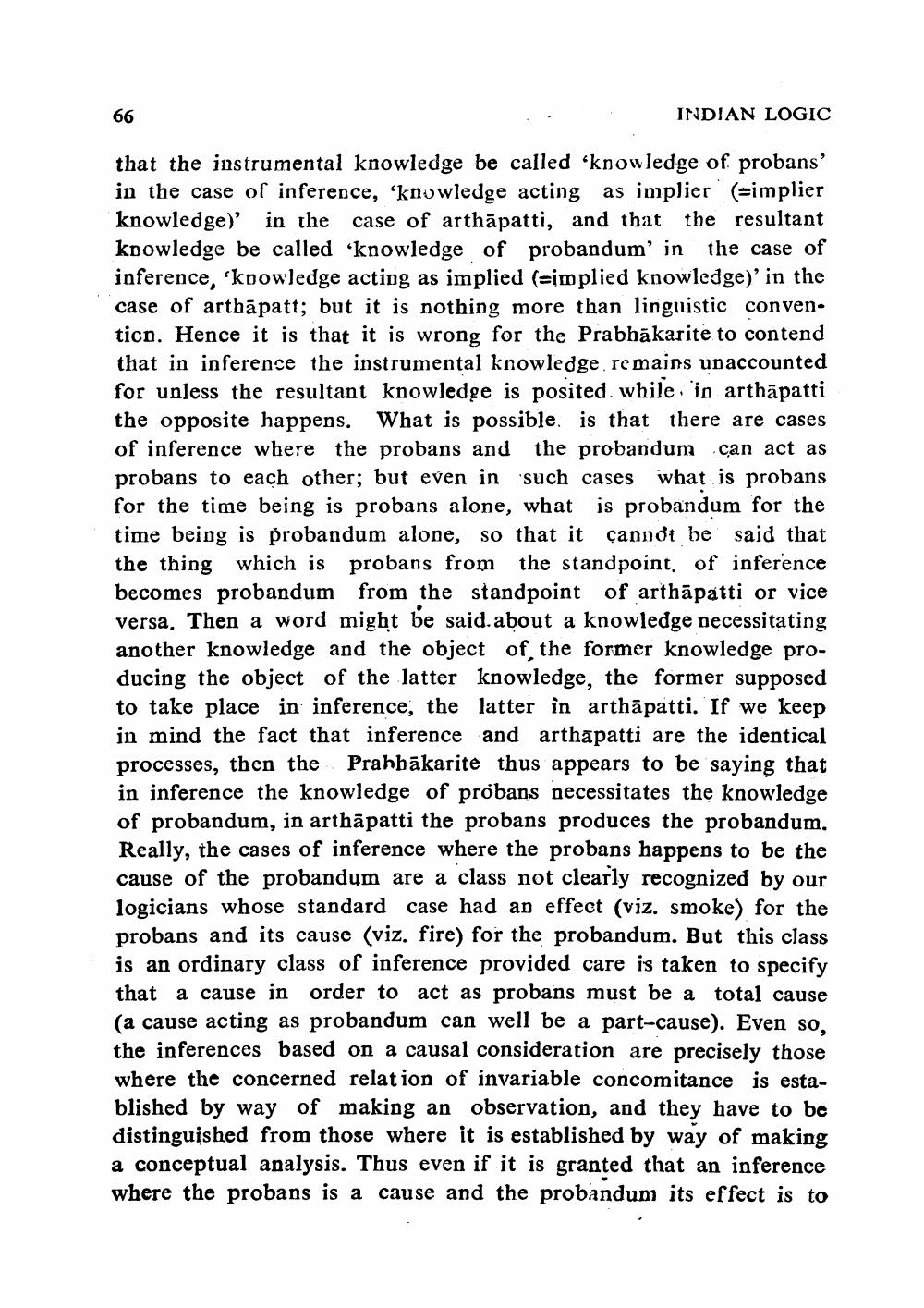________________
66
INDIAN LOGIC
that the instrumental knowledge be called 'knowledge of probans' in the case of inference, knowledge acting as implier (implier knowledge)' in the case of arthāpatti, and that the resultant knowledge be called knowledge of probandum' in the case of inference, knowledge acting as implied (=implied knowledge)' in the case of arthāpatt; but it is nothing more than linguistic conventicn. Hence it is that it is wrong for the Prabhākarite to contend that in inference the instrumental knowledge remains unaccounted for unless the resultant knowledge is posited. while in arthāpatti the opposite happens. What is possible. is that there are cases of inference where the probans and the probandum can probans to each other; but even in such cases what is probans for the time being is probans alone, what is probandum for the time being is probandum alone, so that it cannot be said that the thing which is probans from the standpoint of inference becomes probandum from the standpoint of arthāpatti or vice versa, Then a word might be said. about a knowledge necessitating another knowledge and the object of the former knowledge producing the object of the latter knowledge, the former supposed to take place in inference, the latter in arthāpatti. If we keep in mind the fact that inference and arthapatti are the identical processes, then the Prahbākarite thus appears to be saying that in inference the knowledge of probans necessitates the knowledge of probandum, in arthāpatti the probans produces the probandum. Really, the cases of inference where the probans happens to be the cause of the probandum are a class not clearly recognized by our logicians whose standard case had an effect (viz. smoke) for the probans and its cause (viz. fire) for the probandum. But this class is an ordinary class of inference provided care is taken to specify that a cause in order to act as probans must be a total cause (a cause acting as probandum can well be a part-cause). Even so. the inferences based on a causal consideration are precisely those where the concerned relation of invariable concomitance is established by way of making an observation, and they have to be distinguished from those where it is established by way of making a conceptual analysis. Thus even if it is granted that an inference where the probans is a cause and the probandum its effect is to




